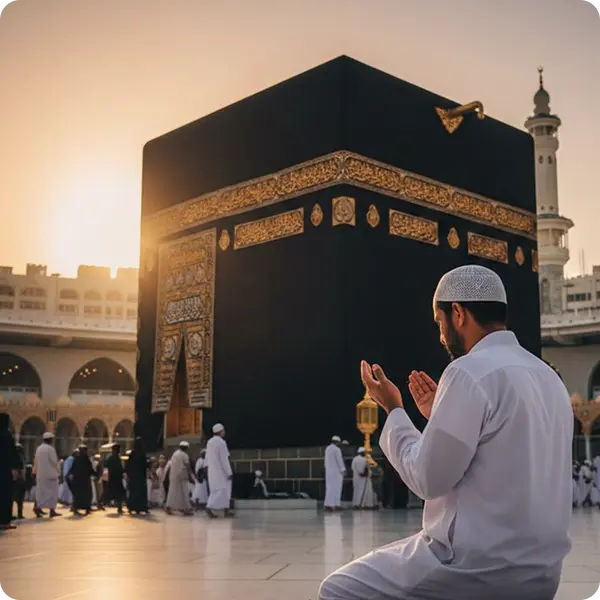Your Sacred Journey
Begins Here
Experience spiritually fulfilling Hajj and Umrah pilgrimages with complete guidance, premium accommodations, and unwavering care every step of the way.
24/7
Support Available
Complete
Pilgrimage Guidance
Premium
Accommodations
Our Services
Everything You Need for a
Blessed Journey

Complete pilgrim care from departure to return
Visa Processing
Complete assistance with Hajj and Umrah visa applications
Guided Ziyarat Tours
Visiting historical and Islamic places in Makkah and Madinah
Air Ticket Booking
Flexible travel dates and group arrangements
Medical Support
Basic medical guidance and first-aid support during group travel
Hotel Accommodation
Premium hotels close to Masjid al-Haram and Masjid an-Nabawi
Meal Arrangements
Halal breakfast, lunch, and dinner included in packages
Transportation
Air-conditioned buses for Ziyarat and intercity transfers
Hajj Camps
Mina, Arafat & Muzdalifah tent accommodation arrangements
Accommodation Partner
Book Hotels with Booking.com
Find the perfect accommodation in Makkah, Madinah, and worldwide for your sacred journey
Sacred Pilgrimage
Our Hajj Packages
Choose from our carefully curated Hajj packages designed for a spiritually enriching experience
Year-Round Pilgrimage
Our Umrah Packages
Flexible Umrah packages available throughout the year for your spiritual journey
HAJJSERVICES
Hajj services refer to the various facilities and support provided to Muslim pilgrims who undertake the Hajj pilgrimage to the holy city of Mecca, Saudi Arabia. Hajj is one of the Five Pillars of Islam and is obligatory for all physically and financially able Muslims to perform at least once in their lifetime.
Hajj Packages
Hajj packages include various services and amenities to help pilgrims throughout their journey.
Hajj Facilities
It includes all amenities provided in and around the holy city of Mecca, Medinah, Azizia, Mina, Muzdalifa and Arfat.
Hajj Training Videos
Hajj training videos are instructional videos designed to educate and prepare Muslims for the Hajj pilgrimage.
Hajj FAQ's
Our FAQs are designed to help pilgrims embark their holy journey with all the relevant details they need to know about.
Hajj Services Videos
These videos provide an in-depth look at the entire Hajj journey, from the preparations before the pilgrimage.